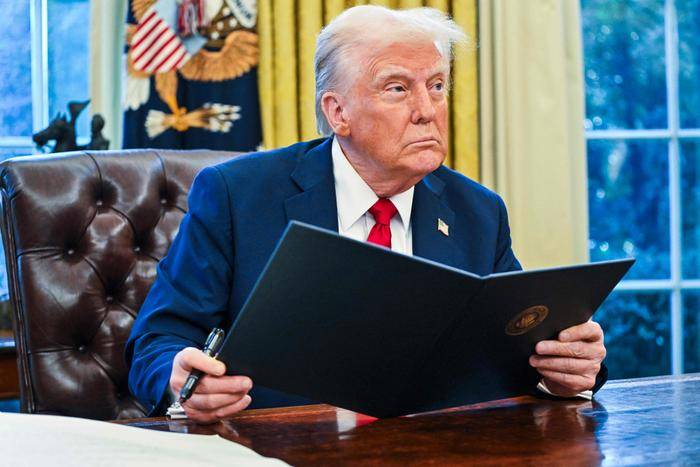Trump Plans Tariffs on Canada, Mexico, and China, Citing Border Security and Drug Trafficking Concerns
In a move that could have significant implications for global trade, President-elect Donald Trump has announced plans to impose tariffs on Canada, Mexico, and China, citing concerns over border security and drug trafficking. The tariffs, which are set to take effect on January 20th, would impose a 25% tariff on all products coming into the United States from Canada and Mexico, and an additional 10% tariff on all goods originating from China.
According to Trump, the tariffs are necessary to address the "thousands of people pouring through Mexico and Canada, bringing crime and drugs at levels never seen before" ¹. The President-elect has also expressed frustration with China's failure to stop the flow of fentanyl into the United States, stating that "until such time as they stop, we will be charging China an additional 10% tariff" ¹.
The move has been met with criticism from leaders in Canada and Mexico, who argue that the tariffs could have devastating consequences for their economies. Mexican President Claudia Sheinbaum has stated that the tariffs could generate inflation and job losses in both countries, and has called for cooperation rather than confrontation ¹.
Similarly, Canadian officials have expressed concerns about the impact of the tariffs on their economy, with Ontario Premier Doug Ford stating that a 25% tariff would be "devastating to workers and jobs in both Canada and the U.S." ¹.
Despite these concerns, Trump remains committed to his plan, stating that the tariffs are necessary to protect American interests and address the ongoing issues of border security and drug trafficking.
The imposition of tariffs on Canada, Mexico, and China could have significant implications for global trade. The three countries are among the United States' largest trading partners, with trade between the U.S. and Mexico totaling $72.5 billion in September, and trade with Canada and China totaling $63.8 billion and $54.3 billion, respectively ¹.
The tariffs could also lead to retaliatory measures from the affected countries, which could escalate into a full-blown trade war. This could have devastating consequences for the global economy, leading to higher prices, reduced economic growth, and job losses.
In response to the tariffs, Canada and Mexico have vowed to take action to protect their economies. Mexican President Sheinbaum has stated that her country will not impose tariffs on U.S. goods, but will instead seek to negotiate a solution with the Trump administration ¹.
Similarly, Canadian officials have stated that they will work with the U.S. to find a resolution to the issue, but will also take steps to protect their economy. This could include imposing retaliatory tariffs on U.S. goods, or seeking support from other countries to pressure the U.S. to lift the tariffs.
China's role in the tariffs controversy is also significant. The country has been accused of failing to stop the flow of fentanyl into the United States, which has contributed to the opioid epidemic. Trump's decision to impose an additional 10% tariff on Chinese goods is seen as an attempt to pressure China into taking action to address the issue.
However, China has responded by stating that it will take "necessary countermeasures" to protect its interests ¹. This could include imposing retaliatory tariffs on U.S. goods, or taking other measures to reduce its dependence on the U.S. market.
The imposition of tariffs on Canada, Mexico, and China by the Trump administration is a complex and contentious issue. While the tariffs are intended to address concerns over border security and drug trafficking, they could have significant implications for global trade and the economies of the affected countries.
As the situation continues to unfold, it remains to be seen how the tariffs will impact the global economy, and what measures the affected countries will take to respond. One thing is certain, however: the tariffs controversy is a major challenge for the global trading system, and will require careful diplomacy and negotiation to resolve.




No comments yet
Be the first to share your thoughts!